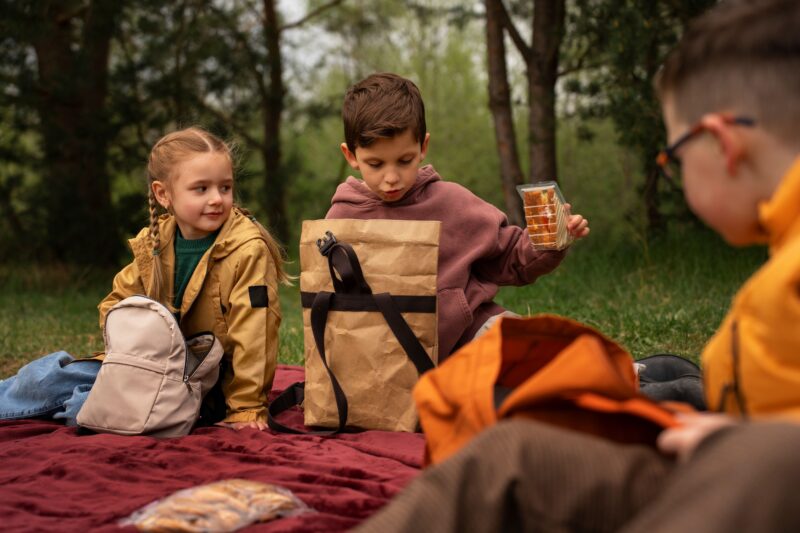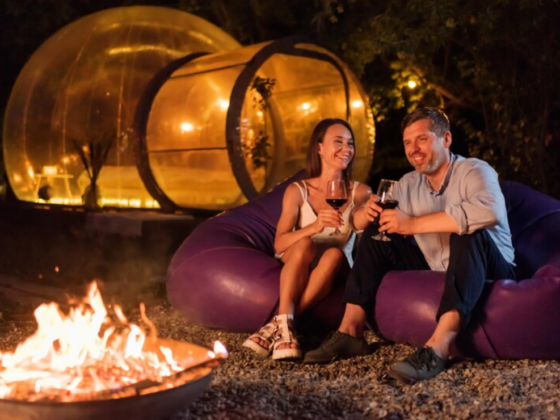Camping is an activity that can bring families closer together, creating lasting memories and fostering a deeper appreciation for the great outdoors. When families embark on camping adventures, they have the opportunity to disconnect from the distractions of everyday life and immerse themselves in the tranquility of nature. This shared experience can strengthen family bonds, encourage teamwork, and instill a sense of wonder and appreciation in both children and adults.
Outdoor activities during camping, such as hiking, fishing, and stargazing, provide a chance for families to engage in physical activity and explore the natural world together. These experiences can have a positive impact on physical and mental well-being, as they promote exercise, reduce stress, and foster a greater understanding of the environment. Additionally, camping allows families to unplug from technology, encouraging quality time spent in conversation, storytelling, and the creation of cherished memories.
Furthermore, camping can be a cost-effective way for families to travel and bond, as it often requires fewer resources than traditional vacations. By embracing the simplicity of camping, families can focus on the essentials and create meaningful experiences without the burden of excessive expenses or planning.
Essential Camping Gear for Families
When it comes to family camping, having the right gear can make all the difference in ensuring a comfortable and enjoyable experience. Here is a list of essential camping gear for families:
- Tent: A spacious, family-sized tent that can accommodate everyone comfortably is a must-have. Look for tents with features like multiple rooms or vestibules to provide privacy and storage space.
- Sleeping Bags and Pads: Ensure everyone has a warm and comfortable sleeping setup, with high-quality sleeping bags and foam or air mattress pads.
- Camping Stove and Cookware: A reliable camping stove, along with pots, pans, and utensils, will allow families to prepare delicious meals in the great outdoors.
- Cooler: A durable cooler to store perishable food and drinks is essential for keeping everyone well-fed and hydrated.
- Lighting: Lanterns, flashlights, and headlamps are necessary for illuminating the campsite, especially during nighttime activities.
- First Aid Kit: A well-stocked first aid kit should be a priority, with supplies for minor injuries and emergencies.
- Camp Chairs and Tables: Comfortable camp chairs and a sturdy table can provide a designated area for dining, relaxing, and socializing.
- Outdoor Gear: Depending on the activities planned, families may need additional gear such as hiking boots, binoculars, fishing rods, or outdoor games.
- Sun Protection: Hats, sunscreen, and sun-protective clothing can help protect against the sun’s harmful rays during outdoor activities.
- Insect Repellent: Keeping mosquitoes and other insects at bay is crucial for a peaceful camping experience.
By ensuring they have the necessary camping gear, families can focus on creating cherished memories without worrying about the essentials.
Tips for Traveling with Kids While Camping
Camping with children can be a rewarding experience, but it also requires some additional planning and considerations. Here are some tips for traveling with kids while camping:
- Involve the Kids: Engage your children in the planning process, allowing them to help choose the camping destination, activities, and even pack their own gear. This will foster a sense of ownership and excitement for the trip.
- Pack Familiar Comforts: Bring along familiar items from home, such as favorite toys, books, or blankets, to help children feel more comfortable and secure in the unfamiliar camping environment.
- Establish a Routine: Maintain a consistent routine, similar to the one at home, to provide a sense of stability and familiarity. This can include mealtimes, bedtimes, and daily activities.
- Embrace Flexibility: Understand that plans may change, and be prepared to adapt to your children’s needs and interests. Be open to spontaneous activities and adjustments to the itinerary.
- Encourage Exploration: Provide opportunities for your children to explore the natural surroundings safely, fostering their curiosity and appreciation for the outdoors.
- Pack Plenty of Snacks: Keep a supply of healthy, easy-to-access snacks on hand to prevent hunger and maintain energy levels.
- Ensure Proper Hydration: Encourage your children to stay hydrated throughout the day, especially during physical activities.
- Plan for Downtime: Schedule periods of rest and relaxation, allowing your children to recharge and avoid overstimulation.
- Communicate Expectations: Set clear rules and expectations for behavior, ensuring a safe and enjoyable experience for everyone.
- Involve the Whole Family: Encourage everyone to participate in camp tasks, such as setting up the tent, gathering firewood, or preparing meals. This promotes teamwork and a sense of shared responsibility.
By following these tips, families can navigate the challenges of camping with kids and create lasting memories in the great outdoors.
Safety Precautions for Camping with Kids
Ensuring the safety of your family is of utmost importance when camping. Here are some essential safety precautions to consider:
- Research the Campsite: Thoroughly research the campsite beforehand, familiarizing yourself with the terrain, nearby hazards, and any specific regulations or restrictions.
- Pack a Comprehensive First Aid Kit: Ensure your first aid kit is well-stocked with supplies for minor injuries, as well as any necessary medications or personal care items.
- Teach Outdoor Safety: Educate your children about outdoor safety, including the importance of staying within the designated campsite, avoiding wild animals, and handling campfires and cooking equipment responsibly.
- Supervise Children Closely: Maintain constant supervision of your children, especially near bodies of water, steep terrain, or other potential hazards.
- Secure the Campsite: Properly secure the tent, food storage, and any other equipment to prevent accidents or wildlife intrusions.
- Familiarize with Emergency Procedures: Familiarize yourself with the campsite’s emergency procedures and have a plan in place in case of accidents or unexpected events.
- Bring Necessary Safety Gear: Equip your family with appropriate safety gear, such as life jackets for water activities, helmets for cycling, and sturdy hiking boots.
- Monitor Weather Conditions: Stay informed about the weather forecast and be prepared to adjust your plans or seek shelter if necessary.
- Respect Wildlife: Educate your children about the importance of respecting and maintaining a safe distance from wild animals.
- Practice Leave No Trace Principles: Teach your family to minimize their impact on the environment by following the principles of Leave No Trace, such as properly disposing of waste and leaving the campsite as you found it.
By prioritizing safety and educating your family, you can ensure a memorable and enjoyable camping experience for everyone.
Reasons Why It’s Important to Travel with Kids
Traveling with children can be a transformative experience, providing numerous benefits that extend far beyond the immediate family. Here are some compelling reasons to travel with kids:
- Broadening Horizons: Exposing children to new cultures, landscapes, and experiences can broaden their perspectives, fostering a deeper understanding and appreciation for diversity.
- Enhancing Education: Travel can serve as an extension of the classroom, providing hands-on learning opportunities that supplement traditional education.
- Strengthening Family Bonds: Shared experiences and quality time spent together during travel can strengthen family bonds, creating lasting memories and a sense of unity.
- Developing Adaptability: Navigating the challenges and uncertainties of travel can help children develop adaptability, resilience, and problem-solving skills.
- Fostering Independence: Travel can encourage children to become more independent, as they learn to navigate unfamiliar environments and take on age-appropriate responsibilities.
- Promoting Empathy and Compassion: Exposure to different cultures and ways of life can cultivate empathy, compassion, and a deeper understanding of the human experience.
- Inspiring Curiosity and Wonder: The awe-inspiring sights and experiences encountered during travel can ignite a sense of curiosity and wonder in children, sparking a lifelong love of exploration.
- Creating Lasting Memories: The memories and stories created during family travels can become cherished keepsakes, forming the foundation for a lifetime of shared experiences.
- Encouraging Appreciation for the Environment: Immersing children in natural settings can instill a deeper appreciation for the environment and a desire to protect it.
- Promoting Healthy Habits: Engaging in physical activities, trying new foods, and stepping outside of comfort zones during travel can foster healthy habits and a well-rounded lifestyle.
By prioritizing travel with children, families can unlock a world of personal growth, educational opportunities, and cherished memories that will positively impact their lives for years to come.
Conclusion
Embracing the joys of family camping can be a transformative experience, creating lasting memories and fostering a deeper appreciation for the great outdoors. From the essential gear needed to the safety precautions and tips for traveling with kids, this comprehensive guide has provided a roadmap for families to embark on unforgettable camping adventures.



